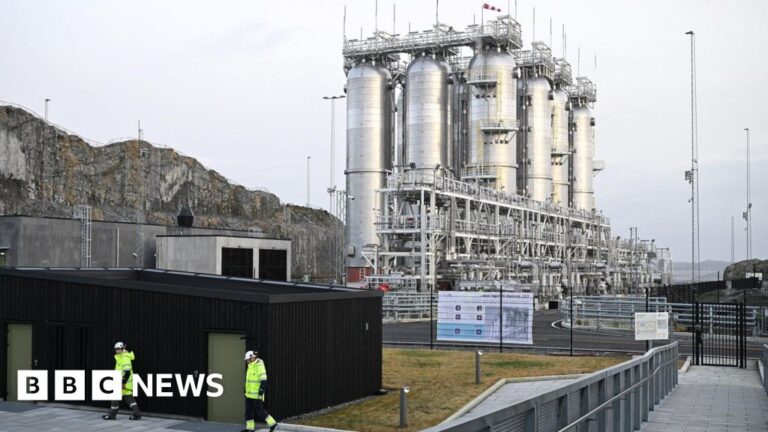Billions Risked on ‘Unproven’ Green Tech, MPs Warn
In recent discussions within the UK Parliament, a concerning message has emerged: billions of pounds are at stake as the country invests heavily in "unproven" green technologies. As the global urgency for sustainable solutions intensifies, lawmakers are increasingly scrutinizing the reliance on untested innovations, raising questions about the effectiveness and viability of these green alternatives.

The Green Technology Gamble
According to a report from the House of Commons Business, Energy and Industrial Strategy Committee, the UK government stands poised to invest approximately £21 billion in various green tech initiatives, including hydrogen production and carbon capture technologies. However, the committee’s assessment indicates that much of this funding is channeled into technologies that are still in their infancy, lacking the substantial evidence or operational track records needed for widespread implementation.
The report highlights a rift between the ambitious targets set by the UK government and the current state of technological readiness. While the UK aims to achieve net-zero carbon emissions by 2050, MPs warn that the country may be pouring investments into technologies that might not deliver as promised. For instance, projections suggest that hydrogen could contribute up to 35% of the UK’s energy needs by 2050, but currently, less than 1% of hydrogen production is green—primarily derived from natural gas.

The Risks of Overreliance
The challenge lies in the potential risks of overreliance on untested technologies. In their report, MPs outline that many of these green innovations still lack comprehensive pilot studies or market readiness, which could culminate in significant financial losses if the technologies fail to deliver results. Chris Skidmore, an MP who contributed to the report, stated, "We must ensure that we are investing in measures that have a clear path to commercialization and can make a tangible difference to our net-zero goals."
For context, a recent study revealed that the global investment in renewable energy technologies drastically rose from $286.9 billion in 2019 to an estimated $366.3 billion in 2020. Yet, this rising tide of investment does not guarantee that all technologies will yield beneficial results. Smart cities technology, for instance, has seen significant investment, but many projects remain in the experimental phase, often bringing more questions than answers regarding scalability and efficiency.

Calls for a Pragmatic Approach
In light of growing concerns, MPs are advocating for a more pragmatic approach to green technology funding. The call for a clear framework to assess the readiness and potential of emerging technologies is imperative. Stakeholders suggest that prior to investing hefty sums, the government should prioritize technologies that have demonstrated reliability in pilot programs and those with established pathways towards sustainability.
Moreover, the challenge extends beyond technological development. The UK has ambitious goals for decarbonization, with pledges to phase out coal-fired power by 2024 and achieve 40 GW of offshore wind capacity by 2030. Achieving these benchmarks requires a balanced investment portfolio that blends various proven technologies alongside the new and untested innovations.

The Role of Innovation in Sustainability
While scrutiny is essential, innovation should not be stifled. Advancements in green tech offer incredible potential, with the International Energy Agency projecting that renewable energy capacity must triple by 2030 to meet global climate goals. The key to unlocking this potential lies in fostering a conducive environment for technological growth while ensuring public funds are prudently allocated.
As the conversation evolves, striking a balance between supporting emerging technologies and demanding evidential success becomes vital. Investing in green technology should not just be about immediate gains but also about forging a sustainable path forward that respects both economic realism and the urgent need for climate action.
Conclusion
The ongoing debate in the UK Parliament presents a pivotal moment for green technology investments. The potential for transformative change remains, but it must go hand in hand with a strict assessment of technological readiness and reliability. Ensuring that taxpayer money is used wisely will not only guarantee progress towards the UK’s climate goals but also maintain public trust in the government’s plans for a sustainable future. As we venture into this green revolution, a cautious yet optimistic approach will serve the best interests of both the planet and the economy.



